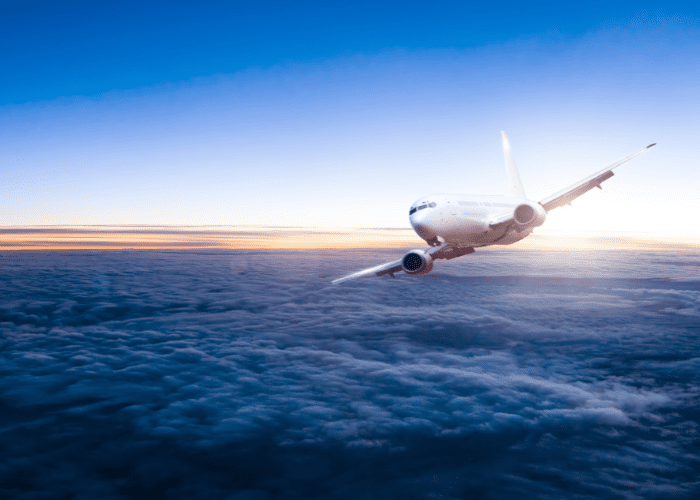“In today’s digital age, connectivity is a double-edged sword,” states Nathan Mercer, a connectivity solutions expert from Truely. This sentiment captures the crux of growing concerns surrounding using in-flight WiFi, specifically on UK flights. As passengers seek the convenience of remaining plugged into the digital world, even at 35,000 feet, experts caution against potential cybersecurity risks.
Analyzing the Risks
As technology advances in the aviation industry, it becomes more vulnerable to cyber attacks from groups like nation-states and terrorists.
The primary concern with using WiFi on airplanes stems from the vulnerabilities within the network itself. Unlike home or office networks, which may have robust security systems, the WiFi service on an aircraft operates in a uniquely confined and highly accessible environment. This scenario increases the risk of unauthorized access to sensitive information such as personal data, business emails, or even login credentials.
Nathan Mercer elaborates: “Aircraft WiFi systems often lack the rigorous security protocols you might expect in other public WiFi networks. They’re designed for convenience, not security.”
Key Points to Consider
Security experts warn that accessing the internet while flying could endanger personal data. Inmarsat, a British satellite telecommunications company, reports that 80% of individuals would use in-flight Wi-Fi if available, with over 65% having utilized it in the past year.
To help passengers navigate the complexities of using in-flight WiFi, here are several essential aspects:
- Open Network Hazards: Most airline WiFi networks do not require passwords, making them inherently insecure. Anyone on the flight could potentially intercept data sent or received by other passengers.
- Man-in-the-Middle Attacks: These attacks involve an attacker secretly interfering with the communication between two parties who believe they are directly communicating with each other. This risk is significantly magnified in an airplane setting.
- Sensitive Transactions: Avoid conducting transactions or activities involving sensitive information, such as entering credit card details or accessing bank accounts, while connected to in-flight WiFi.
- Using a VPN: A Virtual Private Network (VPN) can provide an extra layer of security by encrypting the data sent from your device until it reaches its destination.
When to Connect Safely
Despite these risks, there are moments when using in-flight WiFi might be necessary or harmless. Mercer suggests specific scenarios where the risks are minimal.
Safe Situations to Use In-Flight WiFi:
- Checking Non-Sensitive Information: Browsing non-secure websites or reading news where no login or personal information is required.
- Using Secure Apps: Engage only with apps and websites that use end-to-end encryption, such as most banking apps or secure messaging services.
- Limited-Time Use: Connecting to the WiFi to send a quick, non-sensitive message or to check restaurant reservations without prolonged browsing.
Advice from the Expert
Nathan Mercer advises, “Always weigh the convenience of using in-flight WiFi against the potential risks. If you must connect, taking precautions can significantly mitigate these risks.” Mercer emphasizes that using technology responsively is crucial, especially in environments you cannot fully control, such as aboard an aircraft.
Reflecting on Connectivity and Security
The rise of digital concerns at high altitudes highlights the evolving nature of connectivity and security. While in-flight WiFi is a valuable service, enabling passengers to stay connected across continents, it also poses unseen challenges that require informed and careful handling. Next time you fly, consider whether that quick email check is worth the security risk or if it can wait until you land. Safe travels and safer surfing.
